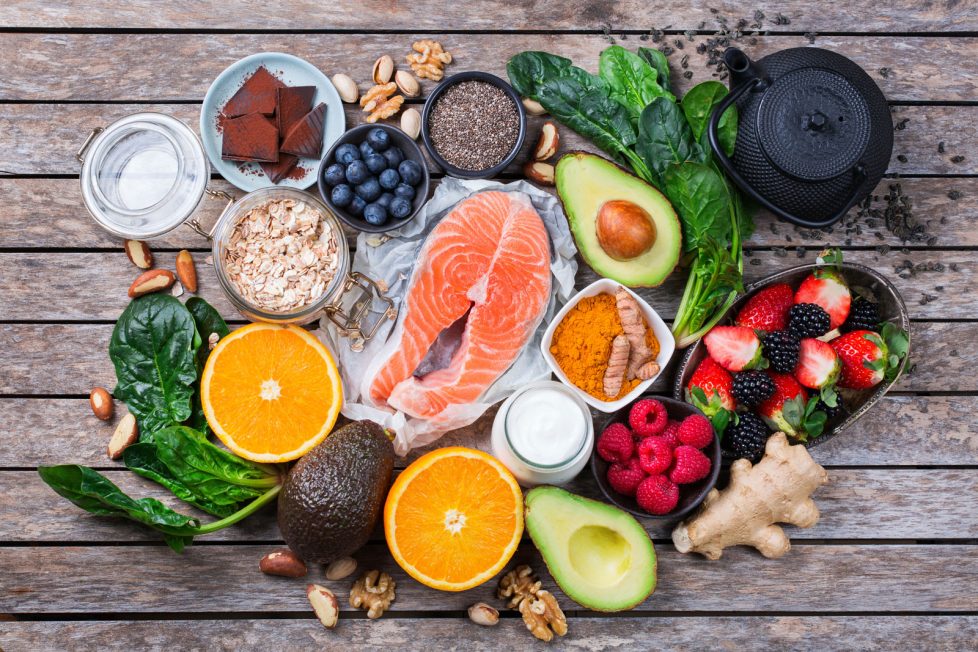The top foods to relieve stress
Do you eat well and exercise regularly, but find that you still can't get rid of that weight and the stress is eating you up?

Do you eat well and exercise regularly, but find that you still can't get rid of that weight and the stress is eating you up?

Look to your stress triggers. A poor diet, busy life, and a demanding job can contribute to chronic stress levels, which can prevent you from losing weight—and may even add on the pounds.
Picture this: You’re deep in a stress spiral and the hunger pangs hit. Chances are a kale salad isn’t the first meal that comes to mind. But opting for a cheeseburger and fries may not be the best answer — and it could even make things worse. Instead of thinking of food as ‘stress eating’ or ‘guilty pleasures,’ we can think of using food to shape the lens in how we experience stress.
Taking control of stress with the foods we eat can help to counter inflammation throughout the body, as well as elevated levels of the hormone cortisol, which can otherwise lead to high blood sugar, increased appetite and weight gain.

If you’ve been holding your palms on your temples all too often, you might be coming up short on certain nutrients. Research suggests that folic acid deficiency can suppress the production of S-adenosylmethionine, a naturally occurring compound that helps produce serotonin and dopamine.
To reap the benefits, whip up a three-cup spinach salad and you’ll reach nearly half of the daily recommended intake of folate for both men and women. For more sources of folate, try beans, chickpeas, lentils, asparagus, avocado, or broccoli.
Try out anchovies, sardines and herring, in addition to salmon, trout and mackerel. These foods are a rich source of stress-busting omega-3 fatty acids known as DHA (docosahexaenoic acid) and EPA (eicosapentaenoic acid), which play an important role in brain health.
Omega-3 fats might help to reduce the symptoms of clinical anxiety, concluded a recent review and meta-analysis of 19 clinical trials involving over 2,200 participants from 11 countries. Consuming high amounts of these fatty acids in fish may help protect us from depression, too, according to other research.
Fresh fruits are also fiber-rich prebiotics, but bananas in particular may have powerful effects on your mood. Bananas are rich in vitamin B6, which is key to helping your body synthesize serotonin and dopamine, two neurotransmitters that trigger the feelings of happiness and calm. (Low levels of serotonin are associated with depression.)
Seventy to 80% of our immune system is reliant on our gut, so if we correct our gut, we correct a lot of our immunity. These probiotic-rich and fermented foods can help balance blood sugar and reduce cholesterol – try for instance greek yogurt, kefir, kimchi, kombucha or sauerkraut.
We said DARK chocolate. Milk and white chocolate are full of sugar (which would only pull you down and make you frown) and contain fewer cocoa solids, the ingredient full of antioxidants which researchers have found can help stimulate the euphoria-inducing chemicals that real chocolate does, especially serotonin, working to buffer the effects of stress. Make sure to grab a bar that’s higher than 70 percent cacao.
Nuts and seeds pack a one-two punch for your mood. Not only do they contain tryptophan, but also they’re rich in gut-loving fiber. It’s important to try and aim for variety and diversity in your fiber sources to create a more heterogeneous, healthier, and ultimately ‘happier’ gut microbiota.
Try sprinkling flax or hemp seeds on your cereal, topping a salad with walnuts or almonds, or adding tahini (a sauce made from sesame seeds) to a veggie wrap at lunch. Switch those crunchy chips for nuts to curb your munchies and relieve stress.
Take out your angst by cracking some vitamin-D-rich eggs and boost your mood in the process. Exactly how the sunshine vitamin works to improve mood isn’t yet fully understood, but one theory is that the nutrient increases levels of feel-good hormones, serotonin and dopamine, in the brain. (Plus, eggs are full of tryptophan, an amino acid needed for serotonin production.)
Not all carbohydrates are created equal. Simple carbs (think: white bread, white rice, candy, and cookies) can cause a spike in blood sugar levels, which can lead to mood swings and a rise in your stress response. On the other hand, complex carbs found in whole grains, such as oats, whole wheat bread, quinoa, and brown rice help stabilize blood sugar levels and can even lower cortisol levels.
Not eating consistently throughout the day, as well as eating foods that are lower in fiber and higher in added sugars, can negatively affect cortisol levels. If you’re stressed out, work on minimizing processed foods and packaged snacks high in sugar, processed meats (like hot dogs) high in salt, alcohol and caffeine.
